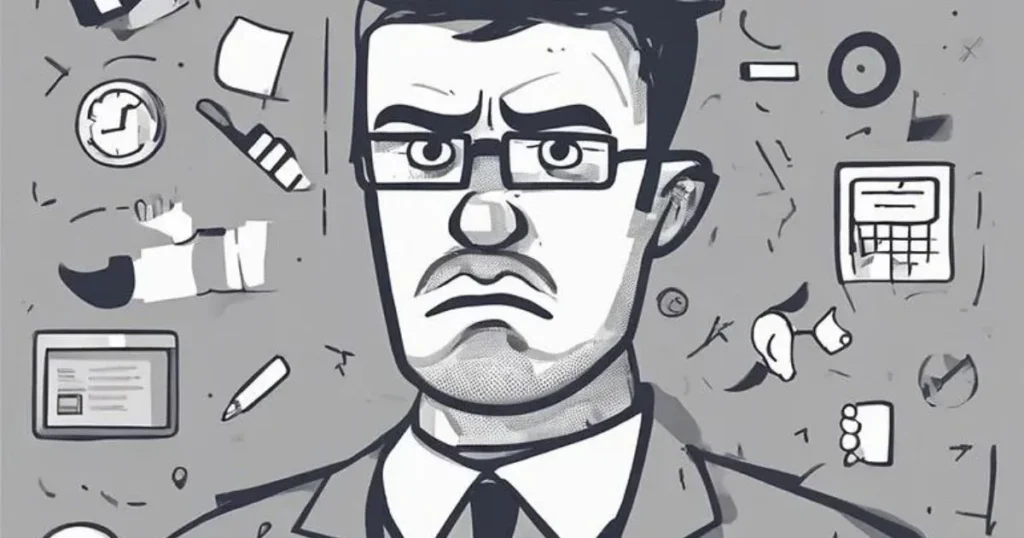Most people think that the people who work in HR are a bunch of heartless robots. Sound familiar?
After years of working in HR, you pick up on a few things.
In this article you’ll learn 7 reasons why employees just can’t seem to stomach the role. And, the behind the scenes view on what it takes to be in it.

1. Perceived Lack of Empathy
You might feel like HR puts the company’s interests ahead of yours, but they’re juggling a lot—trying to look out for everyone.
Most HR leaders genuinely care about supporting people, even if their hands are sometimes tied by policies and politics. While it may seem like HR prioritizes the company’s interests, the role involves balancing both employee needs and company goals.
Policies get created to make sure that everyone gets fair treatment. But this is also where un-bias accountability comes in to play — in the execution, which needs to be consistently handled.
Very few HR people want to be thought of as the most hated person in the room or your local police department. Ultimately, most of us got into this field because we are heart centered and wanted to support people (Shocker, right?!).
As in any job, not everyone gets into it for the ideal reasons, or from a place of true alignment, but that is their own journey… much like the other life choices we make.
As a coach, I believe everyone deserves to find the path that they were truly meant for.
2. Enforcer of Policies
Believe it or not, it’s tough being the bearer of bad news, and HR’s job is like walking a tightrope—creating a fair environment, while still looking out for you (yes, looking out for you). Policies are there to protect you, and most HR people want to be able to support you if you’re struggling at work. The thing is, HR’s role in enforcing policies has to be in place in order to maintaining a fair environment.
While it doesn’t always seem that way, people do come to HR and share concerns about not being treated fairly. It’s a human response. No one wants to feel intentionally excluded or rejected. And HR has become that ‘speak up’ forum.
The intention of these policies is to help protect those employees (when executed consistently and fairly). One day it might be for you.. after all, we’ve all come from childhoods with different triggers that often manifest at work.
Then there’s the dreaded performance plans. Here’s the burning question though – if you’re not performing your job from a place of genuine interest and passion, is it really your ideal job? I know that’s going to be a punch in the gut to some, but I have been there … in a role that wasn’t aligned, and it took my own glaring realization to get in to action on what I really wanted. It’s okay! Why not try to get ahead of it and ask for a coach or some guidance to help you get clarity.
There is NO shame it that game. And remember, performance feedback has nothing to do with your value as a person, it is simply an expectation of success from a company to their employee. You are still a killer human being.
3. Confidentiality Concerns
I get it, sharing personal stuff with HR can feel nerve-wracking, but guess what. They are legally bound to keep things private. Most HR teams do take confidentiality seriously. And they really are held to legal and ethical obligations to protect employee information.
Information is only shared when sensitive matters come up, and on a need-to-know basis. In these instances, HR will let the employee know beforehand, with respect to their privacy.
4. Perception of Bias
It’s easy to feel like HR is always on management’s side, but the reality is they’re stuck in the middle, trying to keep everyone happy.
A tough aspect of working in HR is navigating power struggles and trying to be fair to everyone involved (and when I say power struggles, I mean a lot of passion about similar goals, from a lot of different people, with opposing views on how to get there and how fast).
One of the most challenging aspects can be the expectation to successfully appease the competing interests of employees, management, and the organization. This often involves mediating conflicts, advocating for employee rights, and aligning People strategies with business goals.
It is the job of HR leaders to figure out how to navigate these dynamics while promoting fairness, equity, and collaboration across the organization. (I relate it to parenting, as it can be challenging / impossible to make everybody happy at the same time). But that’s the desire of the heart. And that’s why I keep choosing this Field.
5. Inconsistent Information
When HR drops the ball on keeping you in the loop, it’s frustrating. The goal is to improve communication, so you’re never left in the dark. Effective communication is a cornerstone of HR’s responsibilities.
The goal is to share information about policies and changes within the company to give clarity and transparency. Another opportunity for HR (in my opinion), is more transparent and vulnerable communication, especially with tough news or policies that may not be highly favored.
Communication can break down when things are moving too fast. It’s time to slow down enough to bring employees along for the ride. Believe it or not, HR people are humans and do experience feelings of dread when having to communicate news that will be unfavored. But that’s the integrity of the job. We owe it to internal teams.
The thing is, since HR teams are also employees, we are also going through what the business and employees are going through. No special treatment.
6. Inconsistent Communication
It sucks when HR seems secretive about important decisions like promotions or layoffs. In my experience, HR leaders are doing their best to be upfront with you, explaining why things are happening and what it means for you. HR often leads initiatives related to organizational change, such as restructuring, mergers, or technology implementations.
Navigating the desires of multiple business groups during times of change requires effective communication, stakeholder engagement, and conflict resolution to minimize resistance and foster buy-in from employees and leadership. A challenging economy will also directly impact these decisions.
A connected HR team will partner with the CEO and department leads to communicate openly about the rationale and criteria used in these decisions.
7.Beaurocratic Hurdles
HR processes can feel like jumping through hoops. Many of us are just as eager to cut through the red tape as you are. No one wants to eliminate paperwork or admin tasks as much as I do.
HR processes have become incredibly burdensome. Thankfully with the rise of AI, streamlining is ahead. This will also help alleviate that burden on HR that takes HR people away from the human in resources.
At the end of the day, HR is made up of real people (whaaat?!) who genuinely want to make your work life better.
They’re not perfect, but who is? They’re doing their best to support you in every way they can. And without employees, the company can’t succeed or grow.
“Great things are never done by one person”
And with that, what are your thoughts?



